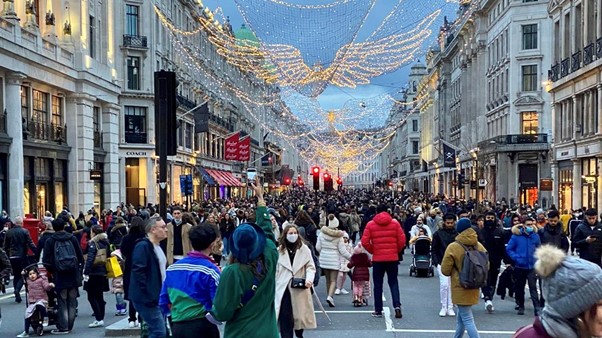
While the Omicron strain is more infectious than the Delta strain, so far, it appears to have milder illness consequences. While it is gaining a foothold with growing numbers worldwide, the Delta variant remains the dominant strain.
Since the new strain is swiftly spreading across the globe, many countries have raised their entrance restrictions quickly.
People who were going to travel or had already made trip plans and had to cancel because of this are experiencing anxiety and fear. This is a significant setback for the airline industry and the already-suffering tourism industry, and things don’t appear to be getting any better.
Is all this fear and panic caused by the news and governments changing rules legitimate, or is it just deceptive?
World Health Organization urges to cancel holiday plans.
As the Omicron variant spreads worldwide, the World Health Organization has recommended that everyone cancel their vacation plans. Germany has become the latest European country to restrict all British visitors to stop the spread of the Omicron strain in the country.
More restrictions are being imposed in Europe’s largest countries to combat an increase of Covid-19 infections, including another lockdown in the Netherlands and tighter travel restrictions at the peak of the holiday season.
WHO Director-General Dr Tedros Adhanom Ghebreyesus said that cancelling an event is preferable to cancelling a life? “Difficult decisions” must be made? He said.
Travel restrictions have been imposed in some nations to stop the strain’s spread. Omicron is now the prevalent strain in the United States, accounting for 73% of new infections.
The White House has stated that President Joe Biden would not be “shutting the country down” when he addresses the nation last week, before the holiday travel season, the country’s top infectious disease specialist, Dr Anthony Fauci, warned that Omicron would spread even among those who had been fully vaccinated.
The CDC (Centers for Disease Control and Prevention) has cautioned Americans against travelling to more than 80 countries on its list for Covid-19, including nearly all of Europe.
Several countries, including France, Germany, and the Netherlands, have implemented travel restrictions to combat Omicron.
New rules in England may be necessary if the number of Omicron cases rises, but Prime Minister Boris Johnson said last week that the government has to “reserve the possibility.” Public indoor and outdoor gatherings in Ireland are subject to rigorous regulations.
New Zealand’s progressive resumption of international travel was postponed until at least the end of February.
The WHO has designated Omicron, which was initially discovered in South Africa in November, as a “variant of concern” for the country.
Tedros noted that there was no evidence to support a claim that the Omicron variant was “spreading significantly faster” than the previous dominant version, Delta.
New Year’s Eve celebrations cancelled
Many New Year’s Eve celebrations have been cancelled worldwide due to either the surge or the fear of the Omicron variety. Trafalgar Square in London is famous for its Christmas and New Year’s Eve celebrations, which attract millions of international and domestic tourists each year, but not this year.
Sadiq Khan, the mayor of London, said the event, which was supposed to be opened to 6,500 key workers and members of the public, had to be cancelled because “we must take the right steps to minimise the spread of the illness.” Europe is also making attempts to combat Omicron.
As the Omicron strain spreads worldwide, London is the next big city to cancel or reduce New Year’s Eve celebrations.
Rio’s world-famous New Year’s Eve events were also cancelled.
The traditional firework display in Paris was also cancelled as France is bracing for tighter controls to stem the spread of the new strain. German politicians banned the sale of fireworks on New Year’s Eve, citing the risk of increasing the burden on already overburdened hospitals with injuries.
Celebrations in Times Square went ahead with a reduced number of people since the variant has spread around New York, and city officials seek to enhance testing capacity in response to increased demand.




















